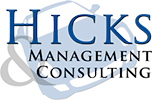
Before pursuing any business acquisition, understanding the surrounding market landscape is a critical step. When assessing potential opportunities in the automotive retail sector, it is crucial to thoroughly analyze key factors, including regional competition, customer demographics, local income levels, and consumer purchasing habits. A well-positioned location can significantly enhance a dealership’s long-term performance, especially in areas experiencing population or economic growth. Additionally, researching regional transportation infrastructure and accessibility can provide insights into foot traffic and drive-in customers. Consulting experienced auto dealership brokers during this stage can help buyers gain deeper insights into market dynamics and avoid entering an oversaturated or falling market that may lead to unseen issues and decreased profitability.
Assessing Operational Efficiency and Regulatory Standing
Reviewing the dealership’s current operations is crucial to gaining a clear understanding of its viability. From inventory turnover rates and employee structure to customer service history and vendor relationships, every operational component influences overall business performance. Buyers evaluating new car dealerships for sale should request full access to historical performance metrics, including sales records, customer retention rates, and service department revenue. Moreover, compliance with industry regulations must be verified. Licenses, environmental standards, and manufacturer agreements must be intact and transferable. Any lapses in these areas can result in regulatory delays or costly legal issues following the acquisition. A professional assessment of these records ensures clarity on the dealership’s current standing and highlights any red flags that may impact transition or operations.
Importance of Franchise and OEM Relationships
Franchise agreements play a central role in the success of any auto dealership. Strong brand alignment can bring ongoing manufacturer incentives, preferred inventory access, and promotional support. Conversely, weak or strained brand relationships can hinder growth and credibility in the local market. When evaluating auto dealerships for sale, it is important to examine the terms and duration of any existing franchise agreements. Prospective buyers should understand renewal procedures, performance obligations, and geographic exclusivity terms. Establishing a clear path forward with the OEM (original equipment manufacturer) helps streamline the transition and ensures continued access to high-demand vehicle models. Finally, establishing open communication with the OEM early in the acquisition process can be advantageous. This allows potential buyers to understand the manufacturer’s expectations for the dealership moving forward, including any capital investment requirements or facility upgrades. A transparent and collaborative approach can help streamline approval processes and set the foundation for a successful, long-term partnership with the brand.
Partnering with Professionals to Navigate the Process
At Hicks Management & Consulting, we help clients navigate these complexities with professionalism and precision. Whether you’re seeking to buy auto dealership assets or expand an existing automotive business, our in-depth industry knowledge ensures each step of the process is thoroughly planned and executed. With extensive experience in dealership acquisitions and strategic business consulting, our team is equipped to guide you through every phase—from due diligence and valuation to operational transition and compliance alignment. We prioritize clarity, efficiency, and long-term success for every client. Visit us today to explore how we can support your automotive investment journey.





